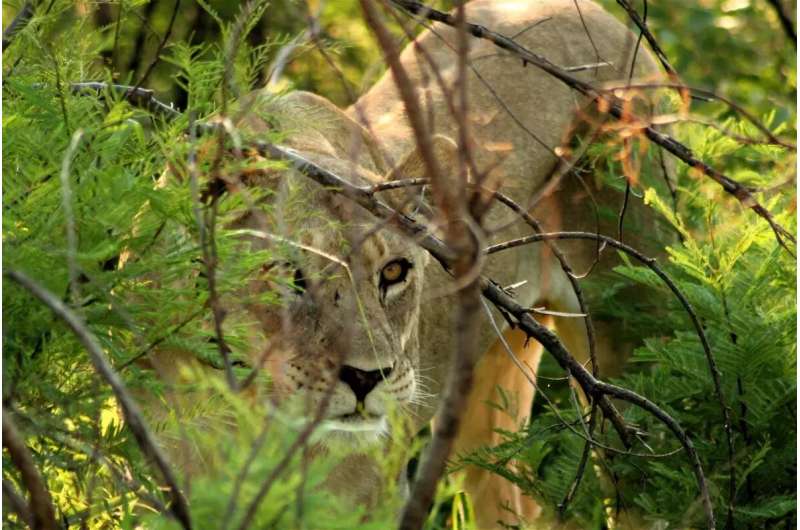Credit: Graeme Shannon
Traumatic events coupled with the lack of experienced adults in elephant family groups can affect the ecological knowledge of younger animals, and ultimately their ability to make crucial decisions when faced with threatening situations.
These findings have implications for the conservation of long-lived social animals, such as elephants, primates and cetaceans.
A study led by Dr. Graeme Shannon (Bangor University) and Prof. Karen McComb (University of Sussex) published in Animals (Elephant Communication issue of Animals 2022), explores how elephants from two populations with very different developmental histories reacted to hearing one versus three roaring lions.
The elephant population in Amboseli National Park, Kenya, consists of stable family groups, which experience relatively low levels of human disturbance. These elephants were able to differentiate the greater threat level associated with three lions roaring by increasing their defensive bunching behavior and protecting the younger and more vulnerable members of the family.
This was not the case with a population of elephants in Pilanesberg, South Africa. The Pilanesberg population was formed in 1979 from young and often unrelated orphan elephants. Having suffered extreme social disruption and with no elders to learn from, the Pilanesberg elephants appeared unable to differentiate between the different numbers of roaring lions. Their defensive bunching responses were not significantly different whether they were presented with playbacks of either one or three roaring lions—despite the much greater risk associated with larger numbers of predators.
"Our findings suggest that profound disruption experienced early in life and the lack of older adults to learn from has significantly impaired the ability of the Pilanesberg elephants to make accurate assessments of predatory threats. The ability to share social and ecological information is vitally important for group living animals, especially among cognitively advanced species such as primates, whales and dolphins and elephants. These animals can acquire detailed knowledge over their long lifetimes," says Dr. Graeme Shannon.
Credit: Graeme Shannon
Distinct disadvantage
Author Prof. Karen McComb, professor of animal behavior and cognition at Sussex University said, "Younger individuals would be at a distinct disadvantage when they are unable to learn from the experience of their elders. Older elephants can act as repositories of information not just about the location of vital food and water supplies, but also about the relative dangers presented by predators or even by different members of their own population.
Co-author Line Cordes of Bangor University said, "In addition to considering population size, a growing body of research suggests that conservation practitioners need to consider the crucial role that age structure and knowledge transmission play in long-lived, cognitively advanced social species."
Credit: Graeme Shannon
More information: Graeme Shannon et al, Social Disruption Impairs Predatory Threat Assessment in African Elephants, Animals (2022). DOI: 10.3390/ani12040495
Provided by Bangor University

























